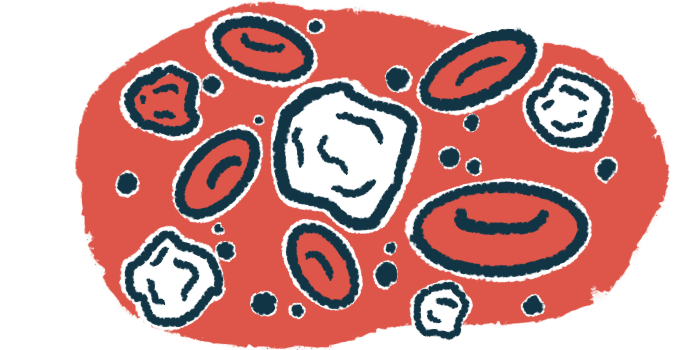Fate’s CAR T-cell therapy for lupus granted FDA’s RMAT designation
Regenerative medicine advanced therapy status 'recognizes potential' of FT819
Written by |

The U.S. Food and Drug Administration (FDA) has granted regenerative medicine advanced therapy (RMAT) designation to FT819, a cell therapy Fate Therapeutics is developing to treat lupus.
An RMAT designation is awarded to treatments for serious conditions that have shown promise in early clinical testing. Designed to speed the development of regenerative medicine therapies — treatments that aim to repair or restore damaged tissues and organs — such status entitles a company to benefits such as more frequent communication with regulators.
“With this designation, we look forward to working closely with the FDA as we seek to accelerate development of FT819 to bring this unique treatment to patients across the continuum of care,” Bob Valamehr, PhD, Fate’s president and CEO, said in a company press release.
Lupus is an autoimmune disease driven by antibodies that attack the body’s own healthy tissues. Antibodies are immune proteins made by a specialized type of immune cells called B-cells.
FT819 is a CAR T-cell therapy designed to eliminate B-cells, and thereby lower the levels of lupus-driving antibodies to control the disease.
FT819 aims to reduce costs, logistical burden of treatment
The therapy uses T-cells, a type of immune cells able to kill other cells. Normally, T-cells play an invaluable role in destroying cells that have turned cancerous or become infected with a virus. In CAR T-cell therapy, these cells are modified with a specialized receptor, known as a chimeric antigen receptor, or CAR, that directs them to attack a specific molecular target.
In FT819, T-cells are equipped with a CAR that targets CD19, a protein found on the surface of B-cells.
Traditional CAR T-cell therapies involve collecting T-cells from the patient who’s being treated, engineering them in a lab, and then returning them to the patient — a process that’s time-consuming and costly. FT819, however, is being developed as an off-the-shelf CAR T-cell therapy using T-cells derived from induced pluripotent stem cells, a type of stem cells that can be created by reprogramming different types of adult cells back to a state in which they can give rise to any type of cell in the body.
This process is designed to reduce both costs and the logistical burden for patients.
We believe our current development strategy for FT819, which is designed to provide CAR T-cell therapy on-demand in a cost-effective manner and alleviate patient burden associated with intense conditioning chemotherapy and extended hospitalization, may enable treatment in the community setting and access to patients in underserved areas.
“RMAT designation recognizes the unique therapeutic potential of our off-the-shelf CAR T-cell therapy to address the unmet need of a wide range of lupus patients,” Valamehr said.
The FDA’s decision to grant the designation to FT819 was based in part on early data from an ongoing Phase 1 clinical trial (NCT06308978) that’s testing the therapy in people with systemic lupus erythematosus (SLE), the most common type of lupus, as well as other antibody-driven autoimmune diseases.
Participants first undergo a round of chemotherapy aiming to wipe out existing immune cells and make room for the CAR T-cells. Then, they are given a single infusion of FT819.
The first lupus patient was dosed last year. The study is actively recruiting people with moderate to severe SLE, ages 12 to 70, at sites in California, Minnesota, and Nebraska.
Additional data from the study are expected to be reported later this year, according to Fate.
“We believe our current development strategy for FT819, which is designed to provide CAR T-cell therapy on-demand in a cost-effective manner and alleviate patient burden associated with intense conditioning chemotherapy and extended hospitalization, may enable treatment in the community setting and access to patients in underserved areas,” Valamehr said.






